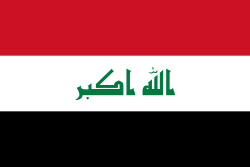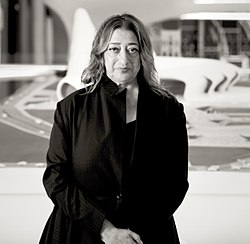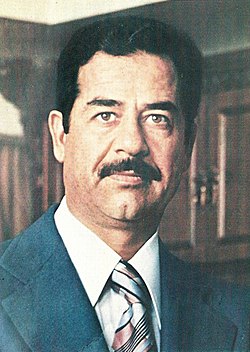This article needs additional citations for verification .(April 2023) |
This list of Iraqis includes people who were born in Iraq and people who are of Iraqi ancestry, who are significantly notable for their life and/or work.
Contents
- Archaeologists
- Artists
- Artists of Iraqi origin
- Architects
- Fashion designers
- Authors
- Business people and entrepreneurs
- Comedians
- Educators
- Engineers and scientists
- Film actors and directors
- Film actors and directors of Iraqi descent
- Human rights activists
- Journalists
- Journalists of Iraqi descent
- Kings and rulers
- Other royals
- Military figures
- Military figures of Iraqi origin
- Misc
- Models, Miss Iraq and Beauty Pageant of Iraqi Descent
- Musicians
- Musicians of Iraqi descent
- Patriarchs
- Physicians and surgeons
- Politicians
- Politicians of Iraqi descent
- Sports personalities
- Sports personalities of Iraqi descent
- Television and radio personalities
- Television and radio personalities of Iraqi descent
- Writers and poets
- Writers and poets of Iraqi descent
- Religious Leaders and Theological Scholars
- See also
- References
 | |
جمهورية العراق Republic of Iraq | |
 | |










































































































